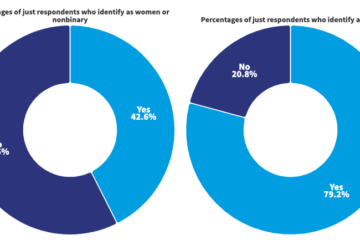A proposal to extend the duration of Medicaid coverage for pregnant Iowans has widespread support, but some activists are concerned about the state potentially lowering the income threshold to participate in the program, saying it would shut out low-wage working moms who desperately need prenatal care.
Many of the people who spoke publicly about the bill at a subcommittee meeting on Feb. 5 at the Capitol said they had mixed feelings about it – gratitude, but also concern.
“One of the things that I think needs to be the backdrop as we talk about this is we have a maternal mortality crisis. We have an infant mortality crisis. This is a single policy lever that you can pull to improve the health of moms and babies, but also support our workforce in Iowa,” said Chaney Yeast, director of government relations and family services at Blank Children’s Hospital in Des Moines.
Yeast said that Blank Children’s Hospital supports the bill and that she is grateful to everyone who made it happen, but that she has concerns about a change to the income requirement affecting working moms – and potentially leaving them without prenatal care while pregnant.
“So those are moms that typically are working for small businesses that don’t provide an employer-based insurance program,” Yeast said, noting that many of these women can’t sign up for a health insurance plan that is part of the Affordable Care Act if they find themselves pregnant outside of the open enrollment period.
The Iowa Senate subcommittee unanimously approved Senate Study Bill 3140, which would provide 12 months of continuous postpartum Medicaid coverage for new moms with income at or below 215% of the federal poverty level, often abbreviated as FPL.
Right now, Iowa law allows for just 60 days of Medicaid coverage after a pregnancy ends. Iowa is one of just three states that have not extended postpartum Medicaid for a full year.
Currently, pregnant Iowans can participate in the Medicaid program if their household is at or below 375% of the federal poverty level. If enacted, the eligibility change could affect over 1,000 women a year.
“Iowa currently has the highest [federal poverty level] eligibility in the nation for pregnant women, at 375%. This proposal brings Iowa in line with other states,” said Molly Severn, deputy chief of staff and legislative liaison for Iowa Gov. Kim Reynolds’ office, which drafted the legislation.
Severn said the new eligibility requirement would be a household income of $42,000 per year or less for a single mom having her first baby; and a household income of $64,000 per year or less for a family of four.
“The governor’s proposal offers coverage for those who truly need it. In fact, even at 215% [of the federal poverty level], Iowa would have the 13th-highest FPL in the nation for pregnant women. It also includes coverage for newborns at 302% FPL through Hawki. This would also be the 13th-highest FPL in the nation for infant coverage,” Severn said.
The full Senate Health and Human Services Committee advanced the bill Feb. 7 on a 9-5 vote, which keeps the proposal alive for debate this year. Republican lawmakers said they were comfortable with the lower eligibility threshold.
“I know Iowa policymakers can do better by pregnant women and babies in this state,” said Sen. Janet Petersen, a Des Moines Democrat. An identical bill is also progressing in the Iowa House.
The year following a birth is especially dangerous for women. More than half of maternal deaths in the United States occur after a birth. Suicide is the No. 1 cause of maternal death in the first year postpartum, according to the Iowa chapter of Postpartum Support International.
Postpartum complications include conditions such as perinatal mood and anxiety disorders; blood clots that if left untreated can cause a pulmonary embolism or death; postpartum cardiomyopathy (heart failure); strokes; hypertension; incontinence, mastitis; postpartum preeclampsia and postpartum eclampsia; infections and sepsis; uncontrolled vaginal bleeding; and more.
Stacy Frelund, government relations director at the American Heart Association, said the bill would help a lot of moms and babies, “especially when we think about how difficult having a baby is. It’s like the stress test of the body.”
Frelund said the American Heart Association is undecided on the bill because of the change related to the income requirements with the federal poverty level – and unintended consequences.
“When you think about Iowa, you think about our workforce, it’s different than other states. Sometimes we have a lot of smaller businesses that might have 10 or fewer employees. … We’ve got farmers, we’ve got people who are helping on the farms, we have people who are taking care of children, day cares.”
Frelund said she is worried about the people living between the old and newly suggested federal poverty level rate who could be shut out of prenatal care.
Categories: Government & PolicyHealth Care


